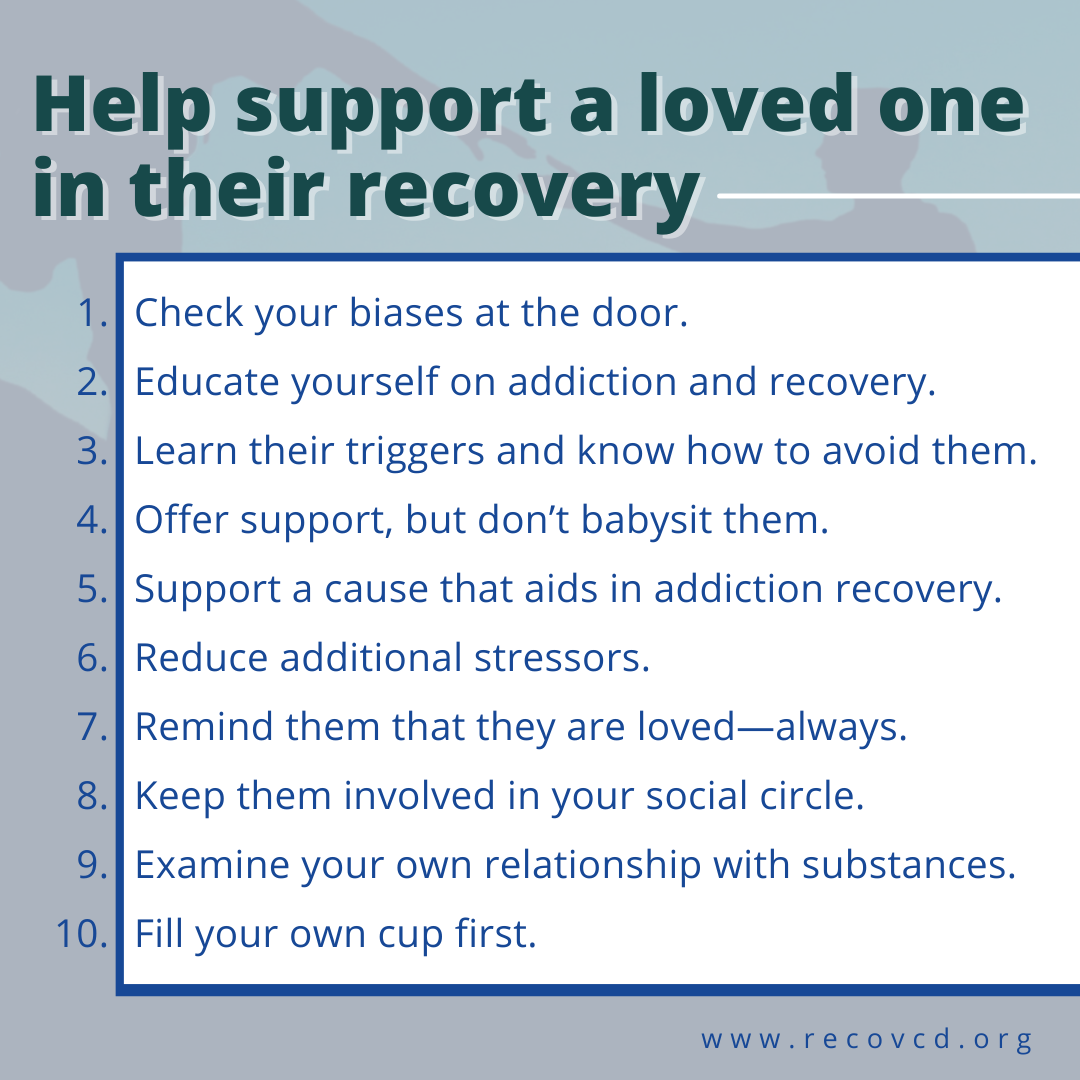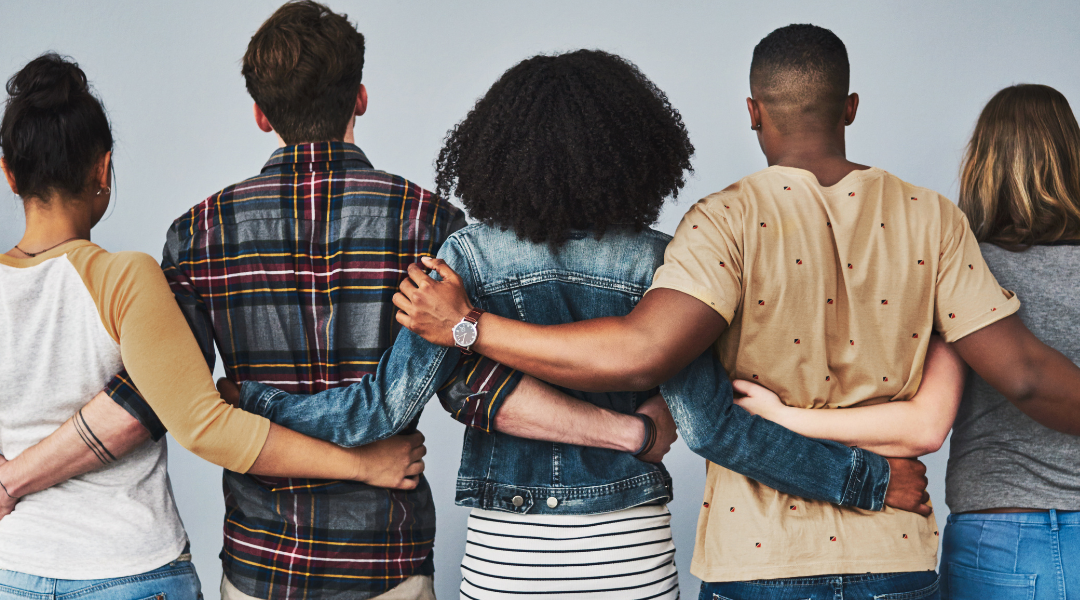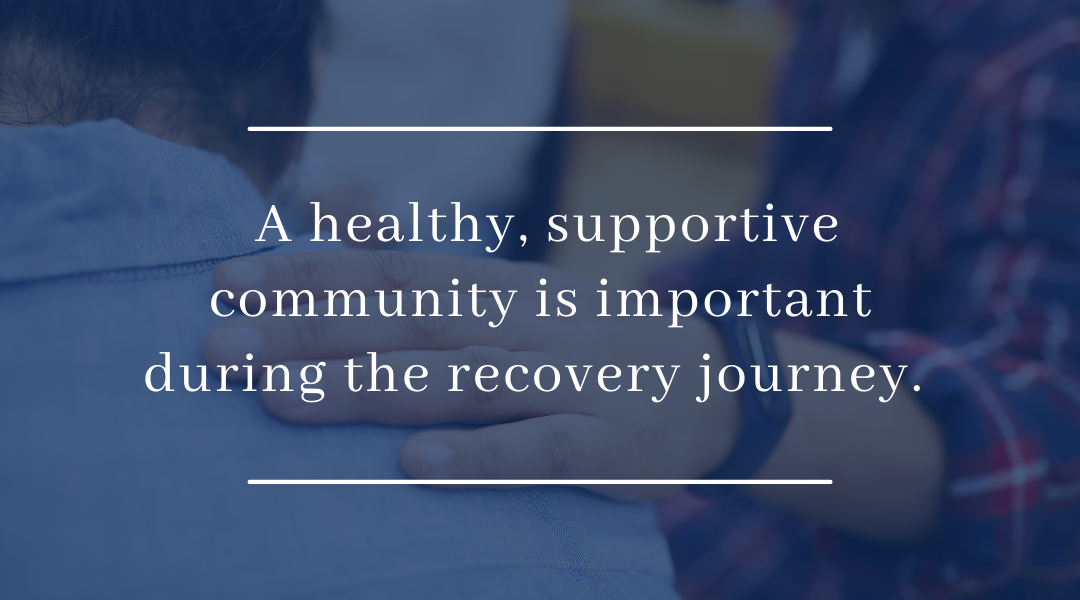It’s never easy being in addiction recovery, however having the support of a loved one can make a pretty big difference. Whether that support comes in the form of time, money, energy, or just a shoulder to cry on, one kind person can be what keeps someone sober on a given day.
At RCD, we believe in the power of connection. That’s why we place such a heavy emphasis on a healthy, supportive community in our affordable sober living houses. With this in mind, here are ten tips that anyone can use to help support their loved one’s recovery.
1. Check your biases at the door.
Recovery is a judgement-free zone. Whatever preconceived notions you may have about addiction or substance use isn’t going to help your loved one recover. If anything, that stigma can often keep people in harmful cycles with substances. The most important first step to helping someone recover is going into it with a clear mind and kind heart.
2. Educate yourself on addiction and recovery.
One of the best ways to reduce substance stigma is education, and that can start on the individual level. Regardless of any potential biases, knowledge is always a powerful tool in the recovery process. Gaining a better understanding of what your loved one is going through can help you be more empathetic to their journey. Moreover, it can also offer you tangible strategies for how to recognize their needs and better respond to hurdles in their path towards sustainable recovery.
3. Learn their triggers and know how to avoid them.
Although educating yourself on addiction in general can be extremely helpful, recovery is also a very individual process. We all respond to things differently, and substance use is no different. It can be helpful to have a clear and kind conversation with your loved one about their relationship to substance use and what tends to trigger them specifically, so you know what to avoid.

4. Offer support, but don’t babysit them.
With that in mind, not everyone responds to support the same way. It’s important that you respect your loved one’s boundaries, and don’t fall into the babysitting trope. Recovery is a challenging process but struggling with addiction is no reason to infantilize anyone. You may want to give all the love in the world, and that’s great, but they should still feel like they have autonomy outside of their recovery, too.
5. Support a cause that aids in addiction recovery.
Depending on how your loved one tends to respond to help, direct support may not be the best strategy. Some people want to go through things alone, and that’s their right. Maybe one day they’ll be open to that direct support, but until then you must respect their boundaries.
In the meantime, it can feel good to put effort into supporting others struggling with substance use by donating time or funds to addiction recovery organizations. (Like us!) Plus, even if they don’t say anything, your loved one might just feel good knowing you’re supporting them the best way you can in the moment.
6. Reduce additional stressors.
Even without touching on substance use specifically, you can offer support to your recovering loved one just by taking some other stressors off their plate. Though you can’t hold yourself responsible for others’ emotions, you can put effort into making their lives a little easier. Some simple ways to do this are offering to clean up around their house, bring them meals, or knocking off a few items on their to-do list.
7. Remind them that they are loved—always.
We don’t always tell our friends and family we love them, and sometimes it can feel a bit funny to find the time to slip that into a casual conversation. Even if it’s not something you’re used to, it can be helpful to verbalize your feelings for someone when they’re going through such a tough process. Addiction can feel so lonely, but you can be the person to remind someone that they’re not alone. Take that chance.

8. Keep them involved in your social circle.
Socializing while on the path towards recovery can be a mine field. Substances are everywhere both tangibly and topically. When’s the last time you went to an adult-oriented social event that didn’t almost entirely revolve around alcohol? Or feature some kind of substance use of another sort? This can cause some folks to unintentionally leave out their friends in recovery for fear of putting them in uncomfortable situations.
It’s not enough to just stop inviting them out to the bars if you’re not inviting them out anywhere else to make up the difference. They need people now more than ever. What types of social outings could you invite them to that won’t involve any potentially triggering substances or conversation topics?
9. Examine your own relationship with substances.
As you work towards creating a supportive, substance-free environment for your loved one in recovery, it can be a great time to examine your own relationship with substances. Although there’s nothing morally wrong with using any kind of substance—they can easily become unhealthy coping mechanisms without us realizing.
Even if it doesn’t result in any lifestyle changes for you, considering your relationship with substances can help further destigmatize your understanding of recovery and empathize with how your loved one may have gotten to this point.
10. Fill your own cup first.
No matter how much you want to help support the people in your life, you cannot help others without helping yourself first. It’s okay to be dealing with your own mental health issues, and that shouldn’t necessarily stop you from supporting a loved one in addiction recovery. However, you need to know how to take care of yourself to ensure that you don’t burn out or further complicate your loved one’s recovery journey.
All in all, there’s a lot to keep in mind when it comes to supporting someone through their recovery. But no matter what happens, just knowing you’re there can make all the difference.
Interested in creating safe, supportive, sober housing opportunities for loved one’s in recovery? You can! Donate today!
